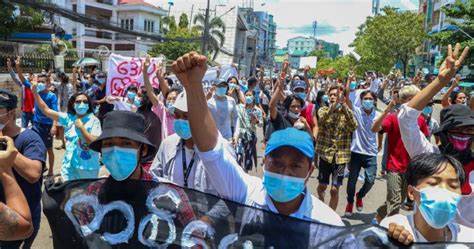Following the coup and a brutal crackdown on unarmed protestors, the people of Myanmar have taken up arms against the military which now only has stable control over 17 per cent of the country.
Thwarted in his bid to consolidate his coup, Senior General Min Aung Hlaing responded with even more violence. The military has restarted political executions, burned entire villages to the ground, bombed hospitals and schools, and even an outdoor concert – attacks human rights groups say may amount to crimes against humanity.
The Armed Conflict Location and Event Data Project (ACLED), a global crisis mapping group, estimates that some 27,683 people may have died from political violence in Myanmar since the military’s power grab in February of last year.
Under pressure, the military has drawn up civilian militias of its own, called Phyu Saw Htee, and launched a campaign of widespread arson, razing homes and villages to the ground in a bid to root out any resistance forces. The fighting is causing untold suffering, having also forced hundreds of thousands to flee their homes.
“Armed resistance, bolstered by an extensive popular non-violent movement, is now so pervasive that the military risks losing control of territory wherever it is unable to commit resources to actively defend,” The Special Advisory Council for Myanmar, a group of rights experts, said in a September report (PDF).
Read more at Al Jazeera.

